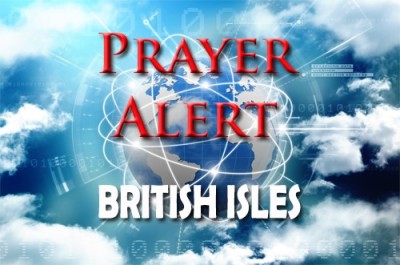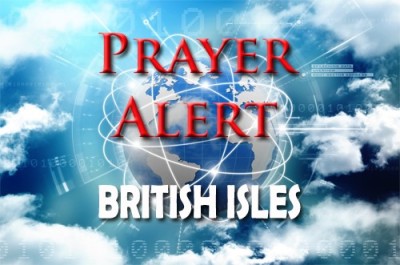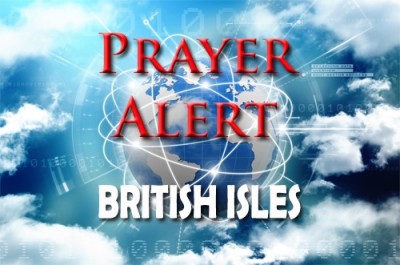India: floods and landslides
21 Oct 2021Record-breaking rains and heavy flooding have killed over 150 people in India and Nepal in recent days. 77 have been killed, 22+ injured, and 26 are missing across Western Nepal; at least 46 have died in Uttarakhand, and 27 bodies have been recovered in Kerala. 11 teams from the National Disaster Response Force also evacuated 6,500 people to 184 relief camps. Crops have been destroyed, roads are waterlogged, bridges washed away, vehicles submerged, and houses reduced to rubble in Kerala, home to 33 million people. The flooding comes in the middle of a religious pilgrimage when Hindus journey to Uttarakhand. 3,000 pilgrims were evacuated from a barge on the Sarda River, which had overflowed. Meanwhile more than 200 families are currently in a further 26 evacuation camps across the state. Heavy rainfall is forecast to continue for the coming days, and residents are urged to stay indoors.
USA / UK: ‘Build Back Better’
21 Oct 2021Joe Biden’s Build Back Better plan has a $3.5tn price tag that could transform millions of Americans’ lives. The bipartisan senate infrastructure bill proposes $66bn of new spending on passenger and freight rail projects over the next decade as the Democrats undertake the most ambitious and transformative domestic policy agendas since the New Deal of the 1930s. It also focuses on a long list of social policies and programmes ranging from education to healthcare to housing to climate. With Republicans unified in opposition, Democrats are using a special budgetary process known as ‘reconciliation’ to avoid the 60-vote filibuster threshold and pass the bill on a party-line vote. Boris Johnson’s Build Back Better plans to support economic growth through significant investment in infrastructure, skills and innovation, and will tackle the NHS backlog while capping social care costs for adults. Another aspect was for a Build Back Coronavirus recovery plan: see
She survived cancer and Covid at the same time
15 Oct 2021Geane Prado was diagnosed with bone marrow cancer. After a bone marrow transplant and a round of chemotherapy, doctors discovered Covid-19. Her condition deteriorated; she wrote goodbye letters to her family, and fully surrendered her life to God. While intubated, she endured pulmonary embolism, cardiac arrest, renal failure, and bacterial pneumonia. Doctors said she had 48 hours to live. Her children mobilized a massive prayer chain through WhatsApp, social media and praying at the hospital door. Across Brazil people joined in intercession. God answered them. Within a short time her fever vanished and her condition improved. Doctors called it ‘a miracle’ because it had nothing to do with medicine. After forty days Geane left the hospital not only healed from Covid, but also from cancer.
From gang leader to gospel sharing
15 Oct 2021Daniel had successes in Gangsta Rap and sold crack and heroin to gangs until 2014. Now he is a missionary pouring out teas and coffees to the marginalised in London. An excited, joyful guest shows Daniel pictures of his new flat. There’s no mistaking his relief at getting a safe stable place to stay after sleeping in tunnels. ‘That’s beautiful bro!’ bursts, Daniel. ‘I’m so happy for you! Bless you!’ Then Daniel points upwards with both hands. ‘And you know what? We give thanks to Jesus!’ This life-changing turnaround for the guest is an insight into how Daniel’s life has changed. Many of those Daniel now ministers to used to be his customers for crack and heroin. To read his story, click the ‘More’ button.
Another boxer gives God the glory
15 Oct 2021After both Manny Pacquiao and Oleksander Usyk declared their faith to the media, Britain's Tyson Fury praised God after retaining his heavyweight boxing world title in a classic fight with Deontay Wilder. ‘First of all, I would like to say thank you to my Lord and Saviour Jesus Christ.’ Fury said.
Assisted dying bill
15 Oct 2021On 22 October the House of Lords will debate and possibly vote on the Assisted Dying Bill. It aims to legalise assisted suicide for terminally ill adults with six months or less to live. The media report that Boris Johnson opposes the legislation after carefully reviewing the arguments for and against a law change. Health secretary Sajid Javid is understood to have made clear he does not intend to vote to relax the law. This news will be welcomed by opponents of assisted suicide who feared a move towards cabinet support for changing the law. In the last year former health secretary Matt Hancock and former justice secretary David Gauke both endorsed assisted suicide. Parliament has debated this issue on several occasions, but there has been no change. Pray for the bill to continue to remain unchanged. See also
Glasgow street outreach during COP26
15 Oct 2021During COP26 Glasgow streets will see hundreds of people gather there to make their concerns known to world leaders through protests and petitions. God knows each and every one of them as immensely valuable, and He wants them to know that. During the conference YWAM volunteers will be based in one of the churches close to the main conference venue. Each day teams will be on Glasgow streets bringing the Good News of Jesus to those they meet. Pray for God’s anointing on each person as they engage with those to whom God leads them. Each of them also has a deep concern for the direction the world is going, and knows that God wants to see His creation flourish. Pray for God to build many bridges between His youth with a mission and those who have come for COP26. Pray also for peace on the streets if emotions run high.
Coronavirus report: lessons learned to date
15 Oct 2021A report compiled by two committees, containing MPs from all parties, revealed that the early response to stop Covid spreading was a complete failure. Attempting herd immunity led to a delay in introducing the first lockdown and cost over 150,000 lives. The report covers a variety of successes and failures in 150 pages. MPs Jeremy Hunt and Greg Clark, chairing the committees, said the nature of the pandemic meant it was ‘impossible to get everything right’. ‘The UK has combined some big achievements with some big mistakes. It is vital to learn from both’, they said. Stephen Barclay said scientific advice had been followed and difficult judgments had been made to protect the NHS. A full public inquiry is expected in 2022, and the Government will not shy away from any lessons to be learned. Pray for the inquiry to have bereaved families at its heart.







